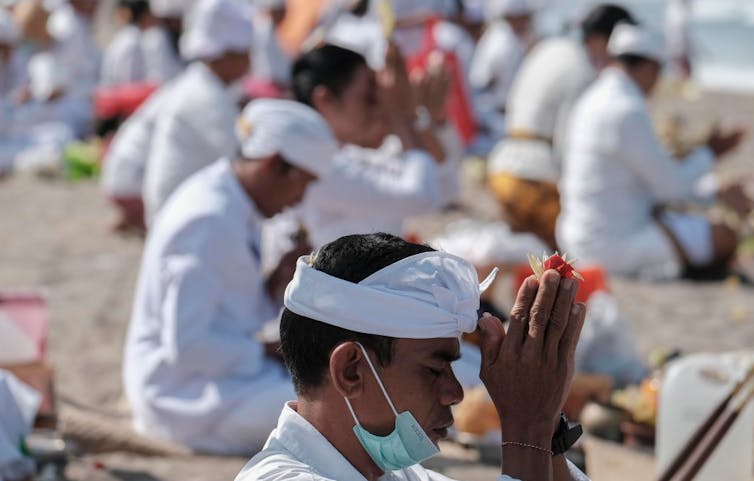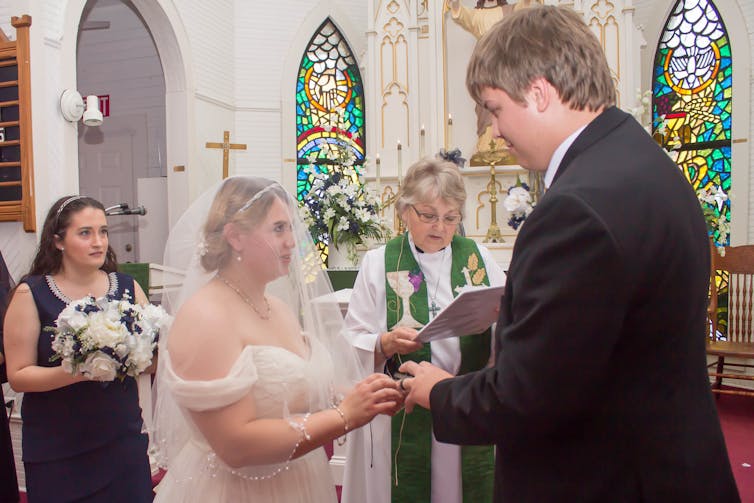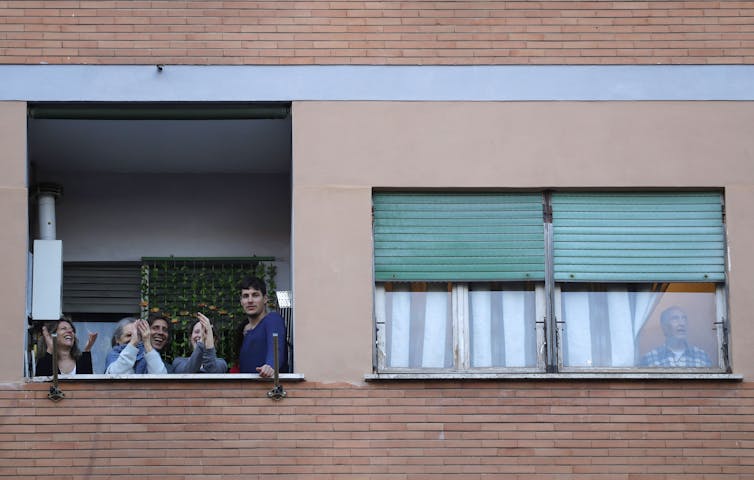
Experts in autocracies have pointed out that it is, unfortunately, easy to slip into normalizing the tyrant, hence it is important to hang on to outrage. These incidents which seem to call for the efforts of the Greek Furies (Erinyes) to come and deal with them will, I hope, help with that. As a reminder, though no one really knows how many there were supposed to be, the three names we have are Alecto, Megaera, and Tisiphone. These roughly translate as “unceasing,” “grudging,” and “vengeful destruction.”
Heaven knows there’s plenty to worry about. At this point there’s no need for me of the Furies to help us keep our outrage – the outrage is evident and overwhelming. What we need is information to help keep us from burning out. I’ve already alluded to, and shared some links to, some of the arts and music and books which are being made available free of charge by people and organizations, just to help us keep going. Then I found this article – about something I hadn’t even thought of.
==================================================================
Why people need rituals, especially in times of uncertainty

Agoes Rudianto/NurPhoto via Getty Images
Dimitris Xygalatas, University of Connecticut
Responding to the coronavirus pandemic, most American universities have suspended all campus activities. Like millions of people all around the world, the lives of students all over the U.S. has changed overnight.
When I met my students for what was going to be our last in-class meeting of the academic year, I explained the situation and asked whether there were any questions. The first thing my students wanted to know was: “Will we be able to have a graduation ceremony?”
The fact that the answer was no was the most disappointing news for them.
As an anthropologist who studies ritual, hearing that question from so many students did not come as a surprise. The most important moments of our lives – from birthdays and weddings to college graduations and holiday traditions are marked by ceremony.
Rituals provide meaning and make those experiences memorable.
Ritual as a response to anxiety
Anthropologists have long observed that people across cultures tend to perform more rituals in times of uncertainly. Stressful events such as warfare, environmental threat and material insecurity are often linked with spikes in ritual activity.
In a laboratory study in 2015, my colleagues and I found that under conditions of stress people’s behavior tends to become more rigid and repetitive – in other words, more ritualized.
The reason behind this propensity lies in our cognitive makeup. Our brain is wired to make predictions about the state of the world. It uses past knowledge to make sense of current situations. But when everything around us is changing, the ability to make predictions is limited. This causes many of us to experience anxiety.
That is where ritual comes in.
Rituals are highly structured. They require rigidity, and must always be performed the “right” way. And they involve repetitition: The same actions are done again and again. In other words, they are predictable.
So even if they have no direct influence over the physical world, rituals provide a sense of control by imposing order on the chaos of everyday life.
It is of little importance whether this sense of control is illusory. What matters is that it is an efficient way of relieving anxiety.
This is what we found in two soon-to-be-published studies. In Mauritius, we saw that Hindus experienced lower anxiety after they performed temple rituals, which we measured using heart rate monitors. And in the U.S., we found that Jewish students who attended more group rituals had lower levels of the stress hormone cortisol.
Rituals provide connection
Collective rituals require coordination. When people come together to perform a group ceremony, they may dress alike, move in synchrony or chant in unison. And by acting as one, they feel as one.

Neal Schneider?flickr, CC BY-NC-ND
Indeed, my colleagues and I found that coordinated movement makes people trust each other more, and even increases the release of neurotransmitters associated with bonding.
By aligning behavior and creating shared experiences, rituals forge a sense of belonging and common identity which transforms individuals into cohesive communities. As field experiments show, participating in collective rituals increases generosity and even makes people’s heart rates synchronize.
Tools for resilience
It is not surprising then that people around the world are responding to the coronavirus crisis by creating new rituals.
Some of those rituals are meant to provide a sense of structure and reclaim the sense of control. For example, comedian Jimmy Kimmel and his wife encouraged those in quarantine to hold formal Fridays, dressing up for dinner even if they were alone.
Others have found new ways of celebrating age-old rituals. When the New York City Marriage Bureau shut down due to the pandemic, a Manhattan couple decided to tie the knot under the fourth-floor window of their ordained friend, who officiated the ceremony from a safe distance.
While some rituals celebrate new beginnings, others serve to provide closure. To avoid spreading the disease, families of coronavirus victims are holding virtual funerals. In other cases, pastors have administered the last rites over the phone.
People are coming up with a host of rituals to maintain a broader sense of human connection. In various European cities, people have started to go to their balconies at the same time every day to applaud health care workers for their tireless service.

AP Photo/Alessandra Tarantino
In Mallorca, Spain, local policemen gathered to sing and dance in the streets for the people in lockdown. And in San Bernardino, California, a group of high school students synchronized their voices remotely to form a virtual choir.
Ritual is an ancient and inextricable part of human nature. And while it may take many forms, it remains a powerful tool for promoting resilience and solidarity. In a world full of ever-changing variables, ritual is a much-needed constant.
[You’re too busy to read everything. We get it. That’s why we’ve got a weekly newsletter. Sign up for good Sunday reading. ]![]()
Dimitris Xygalatas, Assistant Professor in Anthropology, University of Connecticut
This article is republished from The Conversation under a Creative Commons license. Read the original article.
==================================================================
Considering the extent to which most ritual involves being with other people, it is truly impressive how may people are finding ways to have ritual in spite of out public-health-imposed isolation. Maybe some of our readers can think of more examples of people developing new ritual that they have read about or seen – please feel free to share in comments. Maybe you have even devised some kind of ritual for yourself – if so, tell us about that too.
One thing I am doing is terribly obvious to me and probably to anyone who knows me – but until reading this, I didn’t realize how much about it was actually ritual. Up until a couple of years ago, I made a ritual of watching the Met’s filmed operas on public television. Then my local station stopped carrying them. But now that the Met is streaming them, I am making rituals of them – checking the calendar in advance, deciding which ones to watch at what time of day, getting all set in from of the screen, and then lovingly watching. And it does feel like in that way some ritual has returned to me.
Alecto, Megaera, and Tisiphone, you were born in a culture in which ritual was important and respected. The annual plays in honor of the gods (particularly Dionysus IIRC) were so important that laborers were compensated by the state for their day’s wages so they could attend – which makes attendance at least as societally important as jury duty is today. So you know all about it. Help us get the hang of it too.
The Furies and I will be back.
12 Responses to “Everyday Erinyes #210”
Sorry, the comment form is closed at this time.

I’m all for time honored events that need to be attended remotely..and thus….new rituals of observing.
I do like seeing and watching all the folks honoring the health care workers, with cheers and music, and all the positive actions folks are taking, over the air waves, and media.
I cannot change what is or will happen, but I pray daily for a good outcome. For all of us.
Thank you, Joanne (and Furies) for this great post.
Wonderful! Anxiety is all about feeling that things are out of control, and, therefore, or possibly, threatening. I had not thought this a ritual, but I’ve been going for a walk, with my camera, and binoculars, before, and after dinner, most days. In my little community, I’m getting a reputation as “the bird man,” which is fine. People have started to tell me of sightings of possible interest, even some who perhaps have not seen me before.
Thus, I learned of 2 barred owls that were out the night before last. The lady who told me about them wanted to show me a pic. of them, on her cell phone, but I insisted we keep our distance. Then, I was told of a chuck-wills-widow, heard that same night. I was out at 12:45 AM, this morning, and heard it as well.
Take good care, everybody.
Oh, this is wonderful! And so there are two of us now sharing the experience of the aha! moment when we realized something we do habitually is, in fact, a ritual. I already remarked to you privately that you must be in bird heaven there, and I repeat it now.
I don’t personally care much, well, at all, about rituals, but I do recognize I am in a small minority on that, not unlike many other things. However, I DO have a granddaughter graduating high school this year, there were big plans. She still has hope but given that our local paper today predicted a crest 14 weeks from now of 2 million Minnesotans infected, I don’t think there is any chance she’ll have the ceremony her brother did two years ago. It would be nice if schools included this year’s graduates in next year’s events, if that can be made practical. But I do feel for those graduating college and high school, no walk of honor, no prom, no celebratory parties. A rite of passage that the rest of us have taken for granted denied them. Not something they’ll “get over”, it’ll be their defining moment for their senior years. Sadly.
I hope you are all safe, healthy and able to ride out this storm. If the paper is right and two million Minnesotans are infected by mid-June, well, I just hope I’m still here in July to talk about it. And all of you too. :^) gene
I agree with you that scheduling at least the graduation ceremony into next year (or even later in the summer if that becomes possible – might be better if they’re now predicting summer will be a respite and fall will be worse than spring). I’m afraid the prom is a goner, sady.
As a rule, I’m not much into ritual, except for rites of passage, and I have only one left. Who wants a sprinklr of TomCat Ash?
Most interesting, JD!
I suspect there may be some ritualization going on in your WWWendy visits which hasn’t struck you as such. And back when you were able to physically visit your guys, I see a lot of ritual potential there.
Only since she got her WWW outfit, which she is wearing now.
On my guys, as a 12 Step program, CODA is nothing but ritual, but I did that for their sake. Personally, 12 Steps doesn’t float my boat. I prefer a Jungian psychodynamic approach.
My church has gone on-line for worship and with an opportunity for sharing community concerns at a specific time nightly…and are recorded so those providing essential services Sunday mornings can watch when off work. And I’ve begun collecting info. on what platform other churches I’ve visited are using should I want to visit virtually(or share with someone else who would welcome).
Some families I know are doing virtual mutual movie watching(services are helping make it possible), puzzles and other games at specific times when in different locations. Also scheduled Zoom sessions collectively.
And local friends are sharing info. on safe/safer shopping options, especially for fresh items, as discovered along with being in touch more frequently. Some by phone, some by text, some by email.
Scheduling game sessions so you are playing together though apart is a great example. As, of course, are church services,
I like others have tried to think of creative ways to deal with our current lives being placed on hold, turned upside down, due to the COVID-19 virus.
I feel for the students who aren’t going to be able to have their graduations. To me the high schools and colleges should come up with some sort of plan that would allow these graduations to be reschedule. They are their once in a life time for both high school and college students.
I miss being able to go/see my local Padres Baseball games. Here they were only two weeks away from their season opening, which would of been March 26.
I enjoy seeing the way people all across the world are making the best of this. Seeing the people singing from their balconies in Rome.
Music can be so lifting, I know that is something I have always enjoyed.
I pray that we all can stay calm and healthy and make it through these very trying times.
Excellent post.
Thanks Joanne.
Being afflicted with – and sometimes also blessed with – my OCD, I generally find rituals to be quite comforting.
Of course, everyone’s MMV.